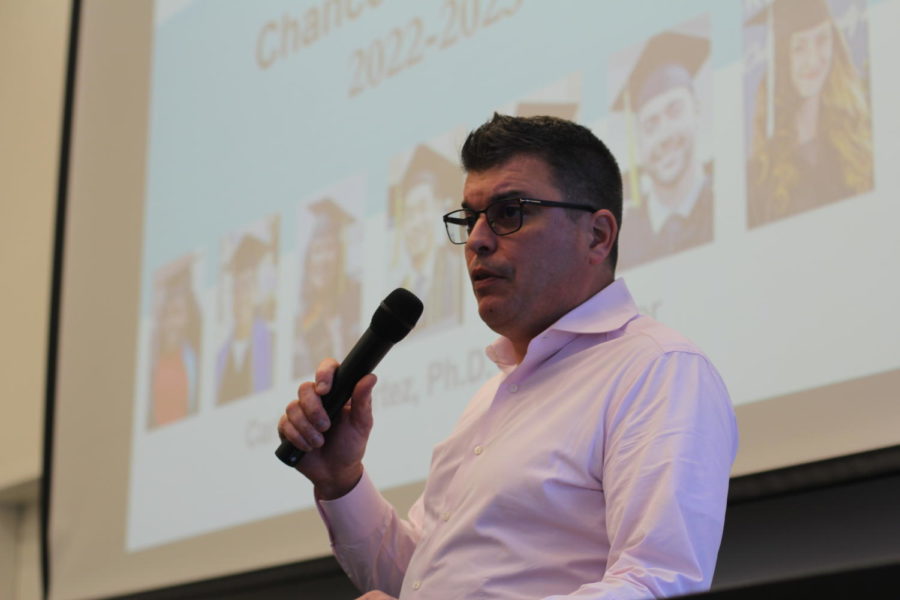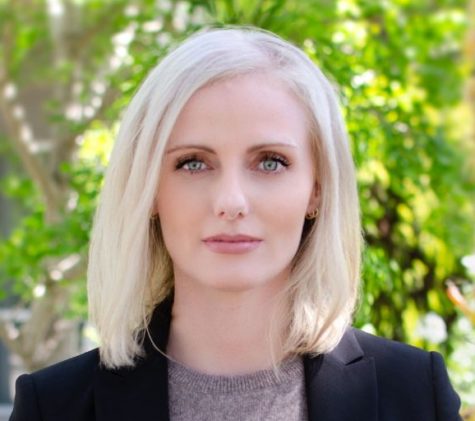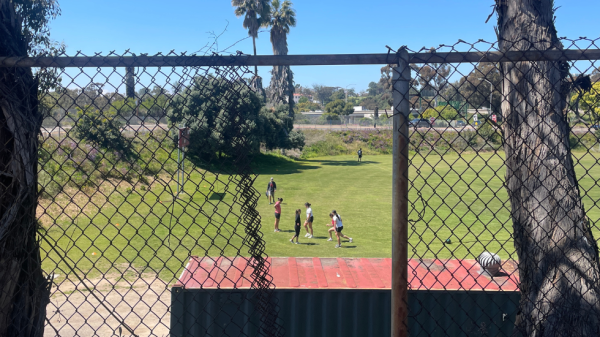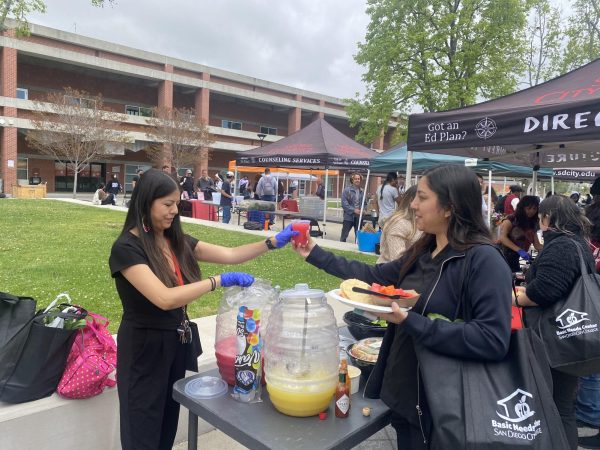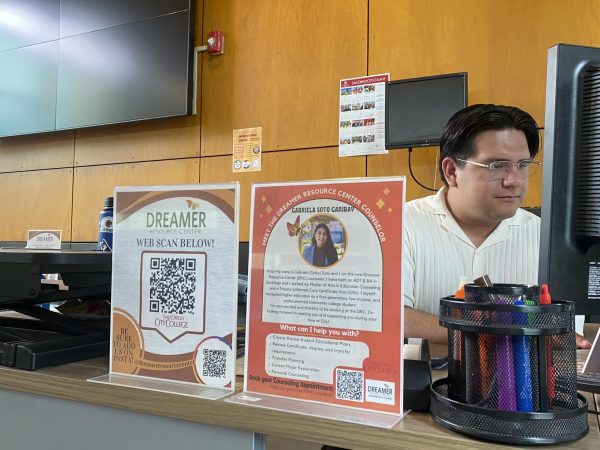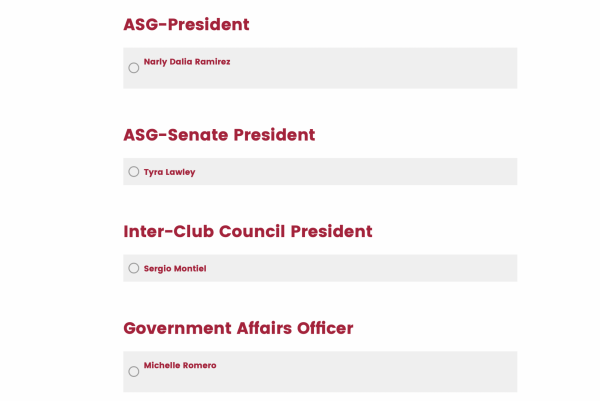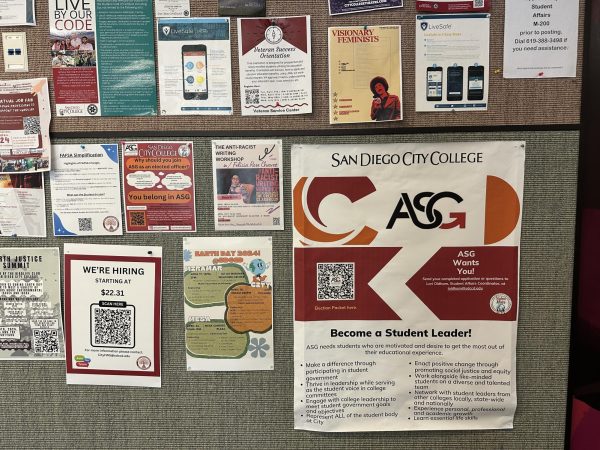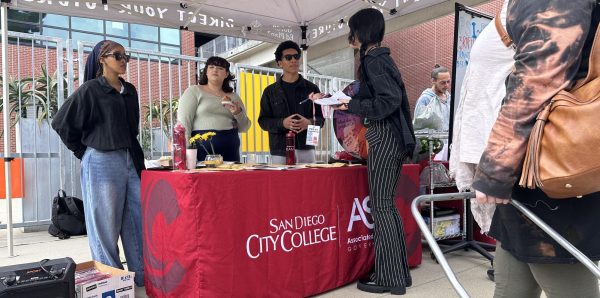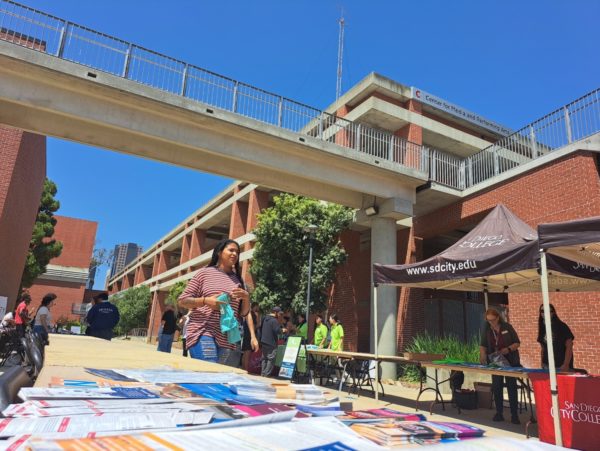SDCCD chancellor, leadership outline priorities at City College forum
Four-year degree program, enrollment, housing and policing among topics discussed
San Diego City College Chancellor Carlos Cortez addresses district priorities at the Chancellor Forum at San Diego City College, Nov. 15, 2022. Photo by Susana Serrano/City Times Media
November 18, 2022
In the days leading up to the transfer application deadline for UCs and Cal State universities, many students scramble to get their applications in.
But what if they could stay at San Diego City College for their bachelor’s degree?
According to an update from San Diego Community College District Chancellor Carlos Cortez, this could soon be possible in Cyber Defense and Analysis at City College.
“My understanding is the program would be created in the next 18 months,” Cortez said in an interview with City Times after the Chancellor’s Forum at City College on Nov. 14, “and would start in fall 2024. That would be City College’s first four-year degree.”
At only $10,000 in tuition for a four-year degree, this would be one of the most affordable degrees in the state and the district plans to have several of these degree programs available in the next ten years, according to Cortez.
Inside the warmth of the MS-140 room, faculty and staff gathered to hear Cortez and district leadership present key priorities for SDCCD, bypassing the chilled lemonade and chewy chocolate chip cookies to settle in their seats on an unseasonably cold San Diego afternoon.
According to Cortez, enrollment is currently down in the district, but downsizing to increase productivity and efficiency was a “strategic decision.” Cortez explained the district’s priority has shifted to degree and program completion, a departure from simply enrolling students.
The purpose of the SDCCD at its core, Cortez said, is to “provide accessible, high-quality learning experiences and undergraduate education at an affordable price to meet the educational needs of the San Diego community and the state.”
Cortez’s challenge to all attendees, a crowd almost entirely made up of campus administration and faculty, was to recruit additional students and show them the opportunities for success and support they have on our campuses. Cortez also highlighted student resources, including counseling, financial aid, career placement, college transfer services and tutoring.
In addition to the focus on academic support, re-invigorating campus life is also a priority, according to Cortez.
“We have students who are really looking for opportunities to make friends, to date other people, to earn money by working on campus or through internships,” Cortez said. “And these opportunities for student life really help make the college experience more dynamic.”
At SDCCD, providing a diverse, equitable and inclusive educational experience for students is critical, according to Vice Chancellor of Operations, Enterprise Services and Facilities Joel Peterson. This is at the forefront of his department as well.
One recent initiative was to create a comprehensive map of all Americans with Disabilities Act travel paths.
“We’re looking to make sure that we can fill in any of the gaps,” Peterson said, “that we make our campuses that much more accessible to all people of all abilities.”
Another initiative to make SDCCD campuses and buildings more equitable and inclusive, Peterson explained, is offering free menstruation products in all female and gender-neutral bathrooms.
According to Peterson, the products are made from organic cotton and other natural materials instead of synthetic ones.
Affordable student housing, according to Peterson, will be a reality for SDCCD students in the future.
“We’re going to be looking at designs and ways in which we can do the lowest cost construction,” Peterson said, “that is still consistent with quality and safety and in a desirable location.”
Campus police, another critical priority for the district, is being reimagined to not only enforce laws but also support the district’s educational mission, according to Peterson.
With input provided by the district police advisory committee, co-chaired by City College Vice President of Administrative Services John Parker, Peterson and his team are in the process of hiring mental health clinicians to work in tandem with the police.
It is critical, Peterson said, that each security situation is evaluated and the appropriate resources and assistance are provided, which doesn’t always require an armed police officer.
Cortez echoed this sentiment, citing the need for safety and security on campus that is sensitive to the needs of our student population.
“We want to make sure that we are safe on campus,” Cortez said, “but we’re not embracing models of policing that are going to scare some of our students from wanting to come to our campuses.”
Cortez closed the meeting by expressing his love for City College.
“I love coming to City College,” Cortez said. “Every time (I visit) I know it is going to be fun. It’s going to be exciting. I’m going to learn something. I’m going to be inspired.”
The next Chancellor Forum is on Monday, Nov. 28 from 2:30-4 p.m. at the district office. The meeting is open to all district leadership, faculty, staff and students.
To view the Chancellor’s Forum presentation, click here.


